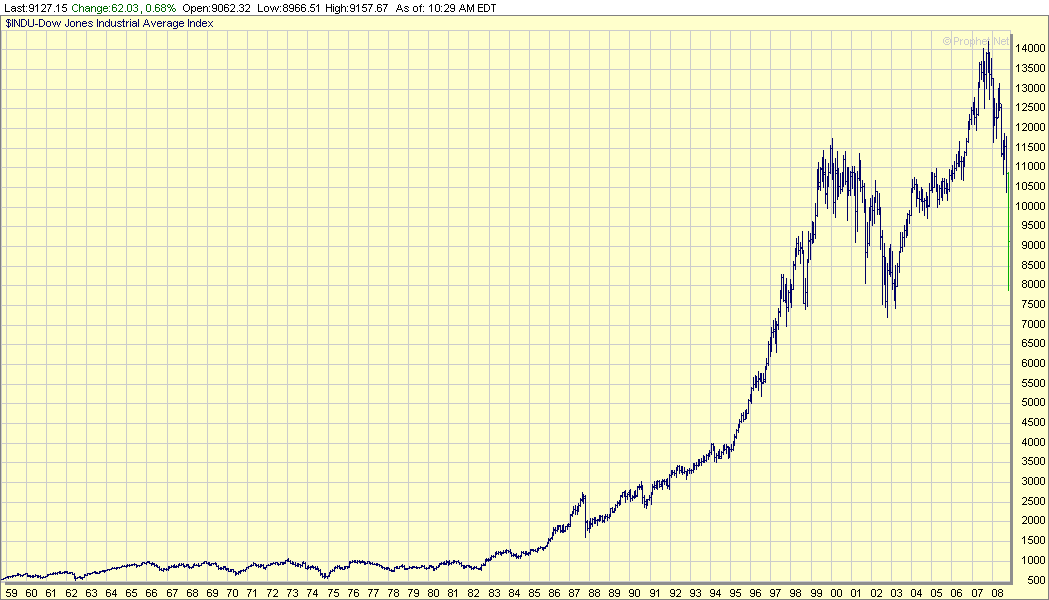Do it before you discard it
I love Esquire Magazine's "What I've Learned" feature.
Also, I was a total late bloomer in realizing how awesome Clint Eastwood is. I knew that he was a bit abnormally accomplished in the artistic sense as a jazz musician, actor, director, blah blah blah. But I learned in conversation only a couple of weeks ago that he has been super active in local politics for years (like, getting his hands dirty and going to meetings, not just wearing Vote or Die t-shirts) and was for a short time the mayor of Carmel, California. I mean, did you know that?
Seems to me that Clint Eastwood is just a man who has really taken life by the horns and has fully inhabited the space that he's in-- and from now on, anytime he's talking, I'm listening. Some of my favorite bits from his "What I've Learned" appearance:
"Like Sir Edmund Hillary talking about why you do anything: Because it's there. That's why you climb Everest. It's like a little moment in time, and as fast as it comes into your brain, you just throw it out and discard it. Do it before you discard it, you know?"
"The Korean War was only a few years after World War II. We all went. But you couldn't help but think, Shit. What the hell?"
"That's why I [ran for mayor]. 'Cause I thought, I don't need this. The fact that I didn't need it made me think I could do more. It's the people who need it that I'm suspect of."
The Sign*
Once upon a time in 1994, a group of JPMorgan bankers during an off-site weekend in Florida ("think yacht parties, bikini models, $1,000 bottles of Cristal") came up with "credit default swaps" as a bold way to protect themselves from loan defaults and free up capital on their balance sheets.
"Within a few years, the credit default swap (CDS) became the hot financial instrument, the safest way to parse out risk while maintaining a steady return.
'I've known people who
worked on the Manhattan Project,' says Mark Brickell, who at the time
was a 40-year-old managing director at JPMorgan. 'And for those of us
on that trip, there was the same kind of feeling of being present at
the creation of something incredibly important.'
Don't ask me how a guy who was 40 in 1994 "knew" people on the Manhattan Project, because I have no idea. The point is, everyone in the finance world in the mid-90s saw the proliferation of credit default swaps as a major, game-changing thing.
Now, check out this chart of the Dow Jones Index from 1958 until 2008:

Oh, hello there 1995! And hello there, subsequent explosive growth that was hardly harnessed by the tech bust or 9/11!
Of course, many banks have now learned the hard way that no matter how much they dice it up and sell it off, risk is still risk. And loan defaults are very bad things that are *very* difficult to fully escape.
So: If that Cristal-fueled weekend in Florida never happened, where would the DJI be today? Based on the trajectory up to then, and using my highly sophisticated "finger tracing" method, I'm going to say around 7000 points. Is that the "bottom" we're all looking for?
I'm actually asking, because I really have no idea. But it makes sense to me.
*Yep, the title is a reference to Billboard's #1 single in 1994, by Ace of Base. Hey, if we're going back to the mid-90s anyway, I say let's go all the way. Flannel shirts, 90210, and "Clueless," anyone?

Ha, well, let me know.
Real talk from Maria Bartiromo
Dressed conservatively in a khaki Escada pantsuit, with a green T-shirt and burgundy Manolos, [Maria Bartiromo] seems not to notice the women in the tiny dresses as she stops to give her autograph to an elderly gentleman visiting the exchange. She thanks him and turns to climb the stairs to CNBC’s mezzanine studio when a Fox correspondent rushes up to her.
She is wearing towering heels, tons of makeup, and a scarlet dress so tight you can see her underwear line and unbuttoned to expose her black lace bra. “Hi, Maria!” she shrieks. Maria’s eyes pop open, but then she smiles and kisses her. It’s only later that she says she was “taken aback.” The Fox reporter is a friend, and insisting that her name not be published, she says, “I did tell her, ‘Don’t ever show up here with your skirt up your butt and your shirt down low like that.’ I said, ‘It’s a distraction, it’s ridiculous, and it’s not what you want.’ I don’t know who’s telling her to do this, [but] there are a lot of women doing that.”
As someone who goes to a lot of financial industry events, I can attest to the fact that a lot of women are indeed doing that-- especially in Silicon Valley, it seems.
Maria, by the way, is obviously aware of her looks and uses them to her advantage in her career-- she has made moves to trademark the term "Money Honey," after all-- but she knows where to draw the line between being feminine and attractive and being just plain unprofessional. I love that in this interview, Maria calls a spade a spade-- and puts her remarks on the record with the VF writer.
Alec Baldwin on wanderlust
“I always think, What if you just took your hand off the wheel, and slowly, over time, it all went away, and your life became about, you know, ‘Is the mail here yet?’ I always think about that.” But this dream of disengagement quickly gave way: in the space of a few minutes, sitting in weak sun on a New Jersey driveway, smoking a cigarette, Baldwin imagined himself as the restaurant critic of the Times; the proprietor of an inn near Syracuse; and the presenter of a classical-music show on public radio. “I could do that,” he said, and he wasn’t exactly joking.
...“To sit there in the studio and just say”—a rich radio voice— “ ‘And now Tchaikovsky’s Symphony No. 6, with Charles Dutoit and the Montreal Symphony Orchestra.’ Click. Hit a button, and then you sit back and listen, and they pay you for that. And I can’t imagine they pay you as much as the movies, but to me it’s getting to that point where there’s just something else I want to do. I don’t know what it is.
Seriously-- if you have a conversation with me for any decent amount of time, I start saying these exact same things. I want to do *so much*, but I also dream of doing absolutely nothing. I'll fantasize about 'taking my hand off the wheel' for a while and doing no work of consequence at all. At the same time, I love being a reporter-- and I'd also love to own a bed and breakfast in Bruges, or operate a lighthouse in Mendocino County, or be a jazz singer in Tokyo, or a screenwriter in Los Angeles, or a personal trainer, or a masseuse... and I genuinely believe I'd be great at any of these endeavors.
In my senior year high school yearbook, I wrote that in 10 years I'd be "Playing serious [career] hardball in New York City, dating a high-profile lawyer, a hip-hop mogul, and Prince William." It was obviously a bit tongue-in-cheek, and I still have a few years left to get such an active love life... but it's an example of a general lifestyle wanderlust to which it seems Mr. Baldwin could relate.
